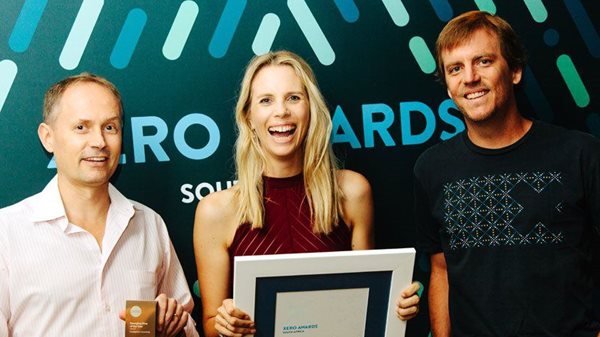UJ adds Xero Learn to its syllabus
Developed by Xero, the global cloud accounting and small business platform, the aim of Xero Learn is to help drive innovation in financial education and develop digital skills fit for the future of accounting. It will support tutors in preparing courses, delivering lessons and provide students with real-world experience in using cloud technology to support clients.
“We’re proud to be the first South African university to introduce Xero to our teaching syllabus. Our vision is to educate a generation of accountants that embraces the fourth industrial revolution. The partnership is a first for education in the accounting industry and will give our graduates the necessary tools to be well-skilled, agile and ahead of the game.” said Professor Amanda Dempsey, Senior Director at the School of Accounting, University of Johannesburg.
Colin Timmis, country manager at Xero South Africa, commented: “Cloud technology is rapidly transforming accountancy, so it’s critical that the next generation of accountants is equipped with these skills to support businesses through economic challenges. We hope this is the first of many academic institutions future-proofing their accounting courses in this way.”
How the technology works
Every full-time, second-year B.Com Accounting student at the university - approximately 800 to 1,000 students each year - will be given a Xero license. After completion of the University of Johannesburg course, every student will be given the option to become ‘Xero Advisor certified’ by completing the Xero Advisor certification.
Within the Xero Learn software there are customisable ‘teaching’ panels that guide students, allowing tutors to adjust the in-product content to meet curriculum requirements. They can also create a dummy company moulded to resemble various scenarios, like a failing company or a completed assignment.
To make these examples as authentic as possible, digital accounting firm DoughGetters worked closely with Xero and the University of Johannesburg to shape the in-product messaging and scenarios. Willem Haarhoff, the co-founder and CEO of DoughGetters Accounting, said: “Developments like this will help equip students with the ideal tools to become digitally-thinking professionals. As a digital-first accounting business ourselves, it’s been great to help create learning experiences that reflect what it’s like in the real world of beautiful accounting.”

Mandi Olivier, Senior Executive: Professional Development Pre-Qualification at the South African Institute of Chartered Accountants (SAICA) confirms that “Accounting Professionals of the future need to have significantly more digital acumen than in the past. The new CA2025 competency framework which will be introduced at universities from 2021 requires far more emphasis on the acquisition of these digital skills. Digital acumen includes data analytics, cognitive and non-cognitive systems, cybersecurity and IT user competencies to name a few. Cloud computing is the way of the future and it is pleasing to see universities adapting by including this in their academic programmes.”
Business’ expectations of their accountants are undergoing a radical shift. Xero research from one year ago showed the majority (61%) of South Africa’s small and medium-sized enterprises preferred their accountants to handle finances exclusively. In new research this year, that number has dropped to only 35%, while the number who consider their accountant a business consultant has more than doubled (11% in 2019 compared to 28% now).
“So beyond merely providing compliance, there’s a need for accountants to stay ahead of the technology curve and adopt the latest tools. As such, we want to equip them with the right skills for the future,” said Xero’s Colin Timmis.




































